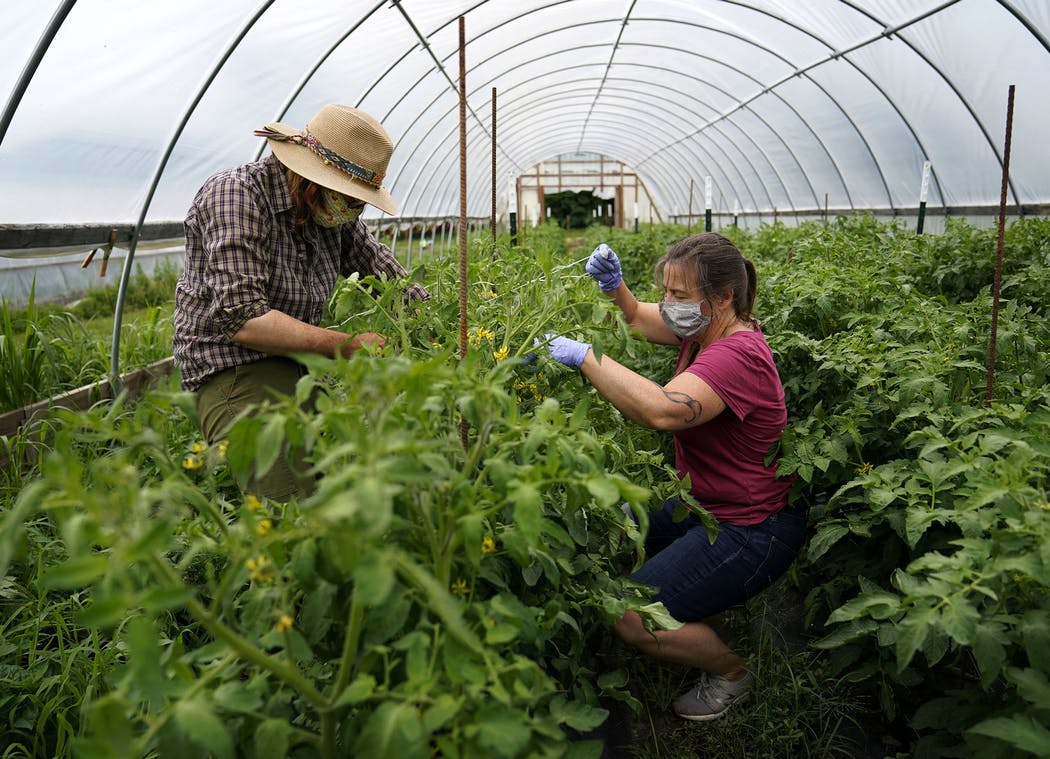The Women’s Environmental Institute is tucked away atop a sweet patch of farmland on the St. Croix River, an hour’s drive from Minneapolis. The institute’s Amador Hill Farm program in North Branch, is a 70-acre organic farm mecca, with eight hoop houses growing seasonal produce, a greenhouse, an apple orchard and 20 acres of tillable land for farming in warmer months.
Volunteers, masked and gloved, have been hard at work in the 100-foot hoop houses and fields, harvesting seasonal produce for the midsummer community-supported agriculture (CSA) boxes — summer squash, greens, cabbage, cucumbers, green onions and soon, Brussels sprouts, eggplants, tomatoes and peppers.
“It’s kind of like working on a golf course, because everyone is really separated out,” said Jacquelyn Zita, WEI’s farm manager and director of education and operations.
Small, sustainable farming operations like the Amador Hill Farm have become more important now than ever. In an effort to keep up with demand, the farm has accelerated its production since COVID-19 cast a shadow over Minnesota.
Read the entire article here.
